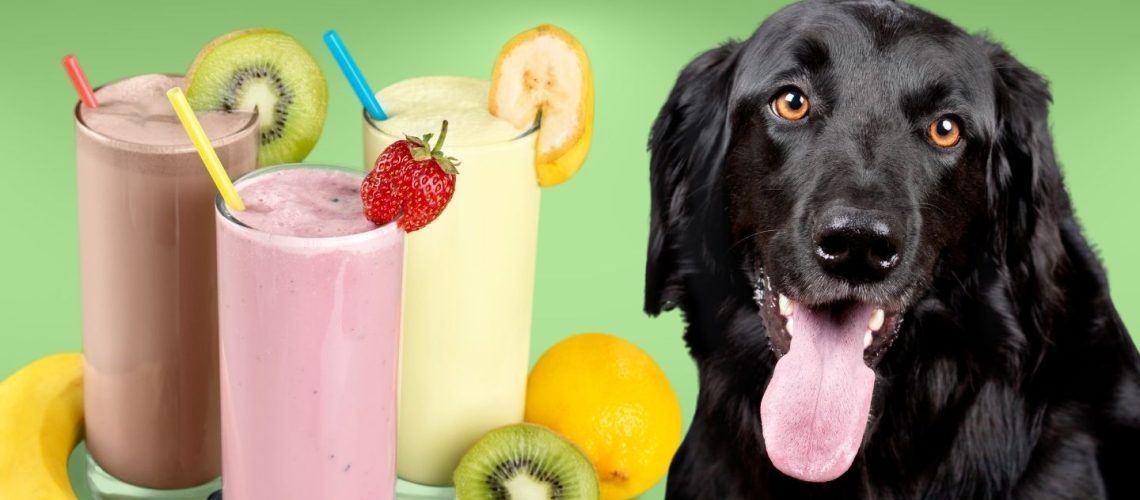The short answer to the question, can dogs eat smoothies, is no. While smoothies may seem like a healthy treat for dogs, they can actually be harmful to their health. This is because smoothies often contain ingredients that are toxic to dogs, such as sweeteners, dairy products, and added sugars. These ingredients can cause digestive upset, tooth decay, and other health problems in dogs.
Introduction to Smoothies and Dogs
What are Smoothies?
Smoothies are blended beverages made from a variety of ingredients, typically including fruits, vegetables, dairy products, and sweeteners. They are often enjoyed for their taste, convenience, and potential health benefits.
Why People Enjoy Smoothies
People enjoy smoothies for their delicious flavors and the convenience of consuming a variety of fruits and vegetables in one drink. Many people also consider smoothies a healthy choice when seeking a nutrient-dense and refreshing beverage.
Dogs' Nutritional Requirements
Dogs, like humans, require a balanced diet to maintain optimal health. However, their nutritional requirements differ significantly from ours. Dogs primarily need protein, fat, and carbohydrates, with specific vitamins and minerals to support their overall health. It is crucial to feed dogs a diet specifically tailored to their needs.
Ingredients in Smoothies
Common Fruits and Vegetables Used
Some popular fruits and vegetables used in smoothies include strawberries, bananas, spinach, and kale. While these ingredients may be safe for dogs to eat in moderation, they do not necessarily provide the complete nutrition dogs need.
Sweeteners and Added Sugars
Many smoothie recipes call for sweeteners or added sugars, such as honey, agave syrup, or simple syrup. These added sugars can lead to obesity and diabetes in dogs, and some sweeteners like xylitol are toxic to dogs.
Dairy Products
Dairy products, like milk and yogurt, are often used in smoothies to provide creaminess and protein. However, many dogs are lactose intolerant and may experience digestive upset after consuming dairy products.
Potential Add-ins (nuts, seeds, supplements)
Smoothies can also include nuts, seeds, and supplements such as protein powders or vitamins. These additives might not be suitable for dogs and can cause allergic reactions or other health issues.
Toxic Ingredients for Dogs
Xylitol and Artificial Sweeteners
Xylitol is an artificial sweetener commonly found in sugar-free products. It is highly toxic to dogs and can cause severe health issues like hypoglycemia and liver failure. Other artificial sweeteners, such as aspartame, can also be harmful to dogs.
Grapes and Raisins
Grapes and raisins are toxic to dogs and can cause kidney failure. Never include these ingredients in any food or treat given to your dog.
Chocolate and Caffeine
Chocolate and caffeine are also toxic to dogs and can cause serious health problems like vomiting, diarrhea, and even seizures. Keep these ingredients away from your dog.
Nuts, Especially Macadamia Nuts
Many nuts, such as macadamia nuts, are toxic to dogs and can cause vomiting, diarrhea, and neurological issues. It is best to avoid giving nuts to your dog.
Avocado
Avocado contains a toxin called persin, which can lead to vomiting, diarrhea, and other health issues in dogs. Avoid sharing avocado with your dog.
Health Risks of Smoothies for Dogs
Digestive Upset
Some ingredients in smoothies, like dairy products or artificial sweeteners, can cause digestive upset in dogs. Symptoms may include vomiting, diarrhea, and gas.
Tooth Decay
The sugar content in smoothies can contribute to tooth decay in dogs, leading to dental issues and bad breath.
Obesity and Weight Gain
Smoothies often contain high calories and added sugars, contributing to obesity and weight gain in dogs, increasing the risk of health issues like diabetes and heart disease.
Allergies
Some dogs may be allergic to specific ingredients in smoothies, such as nuts or certain types of fruit.
Pancreatitis
High-fat ingredients in smoothies, such as nuts and seeds, can increase the risk of pancreatitis, a painful inflammation of the pancreas.
Safe Fruits and Vegetables for Dogs
Apples
Carrots
Green Beans
Blueberries
Watermelon
These fruits and vegetables can be given as healthy treats in moderation, as they are safe for dogs to consume.
Unsafe Fruits and Vegetables for Dogs
Grapes and Raisins
Onions and Garlic
Avocado
Cherries
These fruits and vegetables are toxic to dogs and should never be given to them.
Homemade Dog Treats
Frozen Fruit and Vegetable Treats
Homemade Dog Biscuits
DIY Doggie Smoothie Bowls
Making homemade dog treats with dog-safe ingredients is a great way to provide your dog with healthy snacks.
Commercial Dog Treats
How to Choose a Healthy Dog Treat
Look for treats with natural ingredients and no artificial preservatives or sweeteners. Choose treats with a high protein content and low-fat content.
Dental Chews for Dogs
Dental chews are specifically designed to help clean your dog's teeth and promote good oral health.
Grain-Free Dog Treats
Grain-free dog treats are an excellent option for dogs with specific dietary requirements or allergies.
Feeding Guidelines for Treats
Portion Sizes for Dogs
Give treats in moderation, as even healthy snacks can contribute to weight gain if given in excess.
Adjusting Regular Meals
If giving treats, adjust your dog's regular meals to account for the extra calories to prevent overfeeding.
Monitoring Your Dog's Weight and Health
Regularly check your dog's weight and overall health to ensure they are maintaining a healthy weight and diet.
Conclusion
Summary of Why Dogs Should Not Eat Smoothies
Smoothies contain various ingredients that may be harmful or toxic to dogs, such as sweeteners, dairy products, and added sugars. Additionally, some fruits and vegetables in smoothies can also be unsafe for dogs to consume.
Encouraging Healthy Snacking Habits for Your Dog
Instead of giving your dog smoothies, opt for dog-safe fruits and vegetables, homemade dog treats, or commercial dog treats specifically designed for their nutritional needs. Always monitor your dog's weight and health, and adjust portion sizes and regular meals accordingly.











